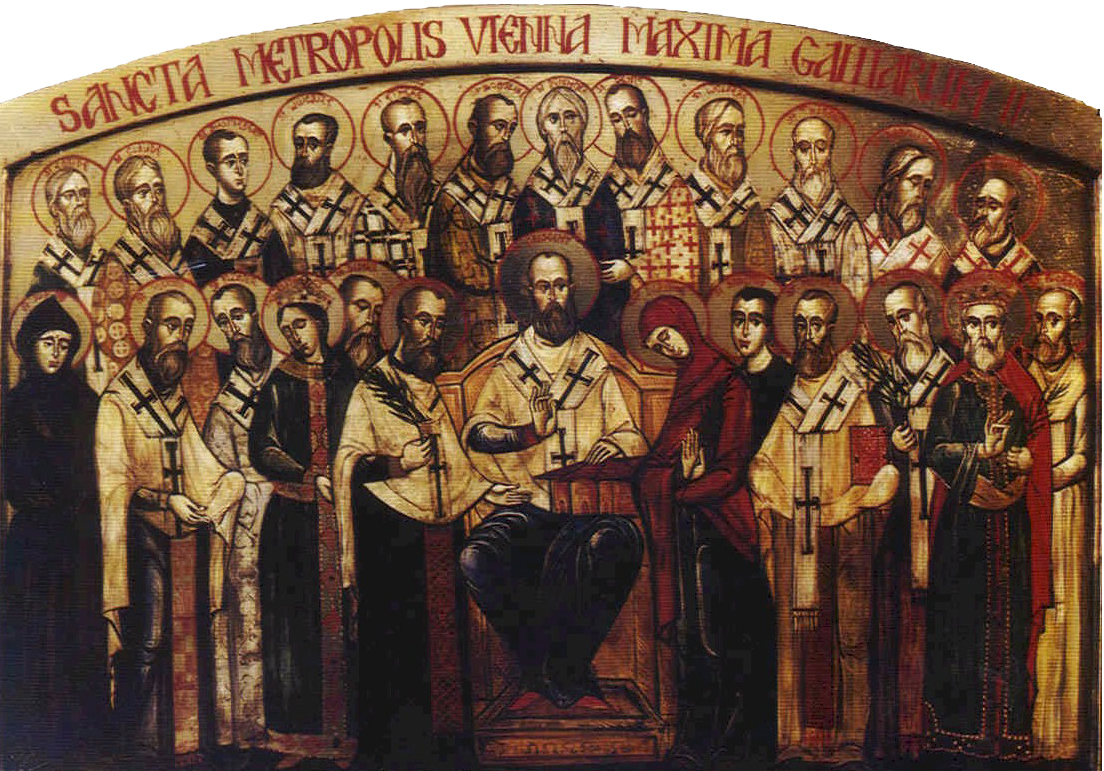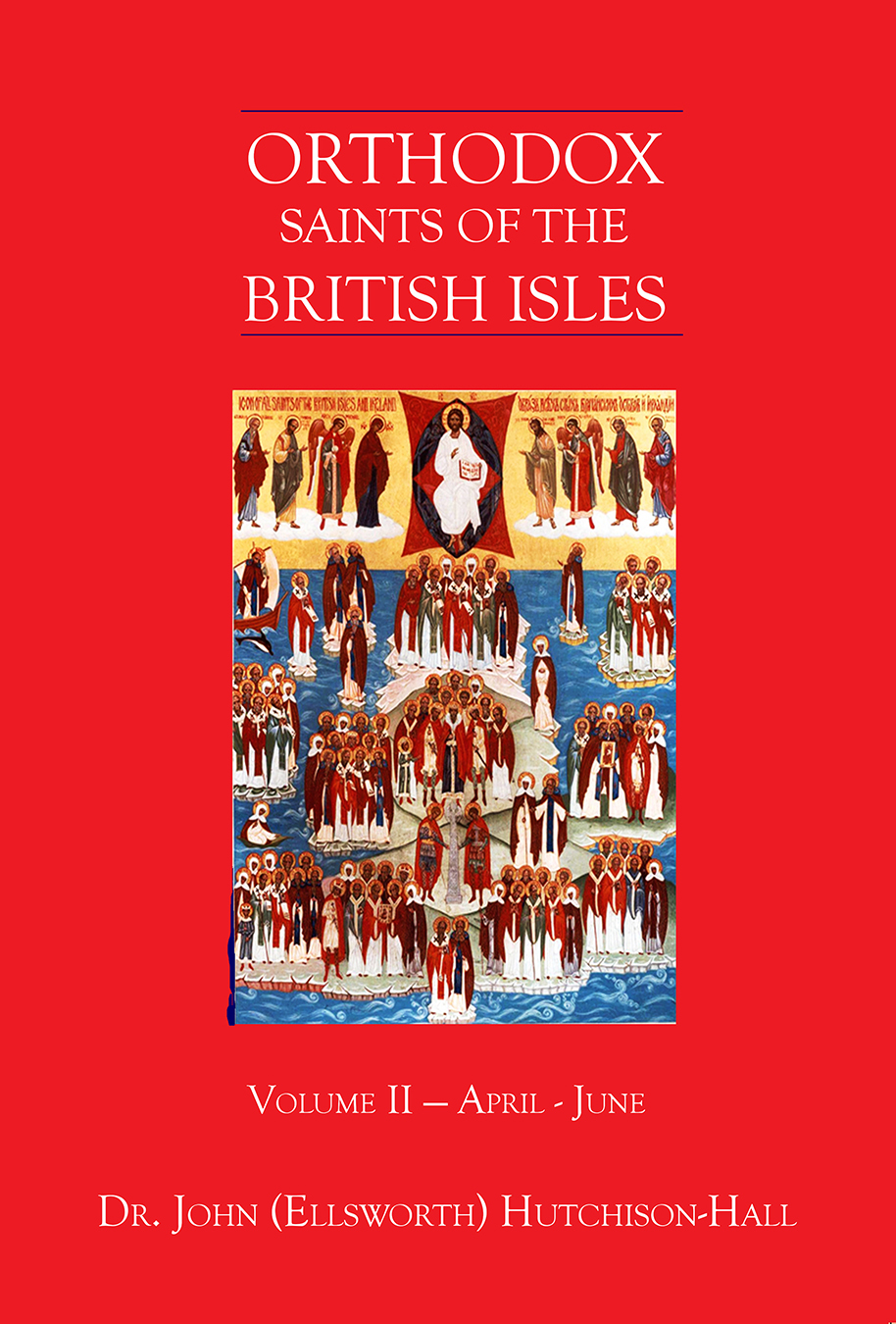
Orthodox Saints of the Pre-Schism
See of Rome
20th May (NS) — 7th May (OS) 2023
DOMITIAN of HUY, often referred to as the “Apostle of the Meuse Valley” (present-day Belgium) in recognition of his efforts there to bring people to Christ. St. Domitian served as the second Bishop of the Diocese of Tongeren and Maastricht. He was a great foe of heresy, which he forcefully spoke out against at the Fifth Council of Orléans in 549; which amongst other things, anathematised Nestorius and Eutyches. St. Domitian reposed 560, and his relics were enshrined at Huy in present-day Belgium.
JOHN of BEVERLEY, our father among the saints John of Beverley was a diligent scholar and teacher who was educated at St. Augustine's monastery at Canterbury (England) under the supervision of St. Theodore of Canterbury (19th September). St. John then went to the double monastery of Whitby Abbey under St. Hilda (17th November). At Whitby, his students included St. Bede the Venerable (25th May), whom St. John ordained to the priesthood. St. Bede the Venerable relates in his Historia Ecclesiastica how St. John cured a deaf mute through his blessing. St. John was first consecrated Bishop of Hexham (England) circa 687, and was translated to Diocese of York (England) in 705. However, he resigned that See after eight years, and retired to the abbey at Inderawood (present-day Beverley, East Riding of Yorkshire, England) which he had founded. St. John reposed there in 721.
JUVENAL of BENEVENTO, however improbable, some say he was deacon to Pope Saint Alexander I (3rd May), whilst more likely is the opinion that St. Juvenal was a Bishop of Teramo in the Abruzzo (Italy). He is thought to have reposed circa 132, and his reputed relics are enshrined at Benevento, Campania, Italy.
PETER of PAVIA, the twelfth Bishop of Pavia in Lombardy (Italy) during the reign of his nephew Liutprand, King of the Lombards (r. 712–744). St. Peter reposed circa 735.
PLACID (PLACIDUS, PLAIT), an abbot of the Abbey of St. Symphorian (abbaye Saint-Symphorien d'Autun) in Autun, Burgundy (France). St. Placid reposed circa 675.
SERENICUS and SERENUS, two noblemen originally from Spoleto in Italy who became hermits near the River Sarthe in Gaul (France). St. Serenicus later served as Abbot of a local monastery, while St. Serenus remained a hermit until his repose. They are believed to have reposed circa 669.
Get your copy of Orthodox Saints of the British Isles today.
Available at Amazon or your favourite e-bookstore.
ÆTHELBERT (ETHELBERT, ALBERT, ALBRIGHT) of EAST ANGLIA, St. Æthelberht was King of East Anglia in England (r. c. 779–794). He was treacherously murdered in 794 by order of King Offa of Mercia (r. 757–796) who had invited St. Æthelberht to his Court under the pretext of marrying his daughter. He was immediately venerated as a martyr especially in Hereford, England where his relics were entombed, and in his native East Anglia.
ANASTASIUS of BRESCIA, a Bishop of Brescia in Lombardy (Italy), who played a significant role in the conversion of the Arian Lombards to orthodox Christianity. St. Anastasius reposed in 610.
AUSTREGISILUS (AOUSTRILLE, OUTRILLE) of BOURGES, a courtier at the court of Gontram, King of Burgundy (r. 561–592) court at Chalon-sur-Saône (eastern France). St. Austregisilus felt called to monastic life and entered the Abbey of St. Nizier (abbaye Saint-Nizier de Lyon) in Lyons (east-central France), receiving monastic tonsure, and ordination to the priesthood. St. Austregisilus was soon made Abbot of St. Nizier, and in 612 was consecrated Bishop of Bourges (central France). He served that See until his repose 624. St. Austregisilus was mourned by his flock who quickly venerated him as a saint, which received Episcopal approval not long after.
BASILLA (BABILLA) of ROME, there seems to be a bit of confusion about this (these) saints, some martyrologies list either St. Basilla or Babilla, some both as separate saints, while others posit they are the same saint. The extant Acts are completely unreliable. The majority opinion is that St. Basilla was a niece of Emperor Gallienus (r. 253–268), who secretly converted to Christianity. When discovered, she was given the choice between marrying a pagan patrician (thus renouncing her faith), or martyrdom. St. Basilla chose martyrdom, and was beheaded in Rome, circa 270 or circa 304.
BAUDELIUS of NÎMES, (Second or Third Century), a married lay evangelist who indefatigably laboured to spread the faith in Gaul (France). St. Baudelius was martyred by the Roman authorities either 187 or 295, depending on the source. At one time there were in excess of four hundred churches dedicated to St. Baudelius in France and northern Spain.
HILARY (HILARIUS, HILAIRE) of TOULOUSE, the third Bishop of Toulouse, from 358 to 360.
PLAUTILLA of ROME, the mother of Flavia Domitilla (12th May). According to an anonymous, but accepted, Life St. Plautilla was a Roman noblewoman who, as an adult, was baptised by the Apostle Peter (29th June). It is said St. Plautilla reposed circa 67.
THEODORE of PAVIA, the Bishop of Pavia from 743 until his repose in 778. St. Theodore was an unreservedly frank critic of Arianism, which earned the enmity of the Lombard Kings, who, amongst other hardships, repeatedly exiled St. Theodore.
Prior to the Schism the Patriarchate of Rome was Orthodox, and fully in communion with the Orthodox Church. As Saint John of Shanghai and San Francisco +1966 said “The West was Orthodox for a thousand years, and her venerable Liturgy is far older than any of her heresies”.
Details of British Saints excerpted from Orthodox Saints of the British Isles.
Details of continental saints from these sources.
In many cases there are several spelling versions of the names of saints from the British Isles. I use the Oxford Dictionary of National Biography version as the primary version with the more prevalent version in parenthesis e.g. Ceadda (Chad) of Lichfield.

